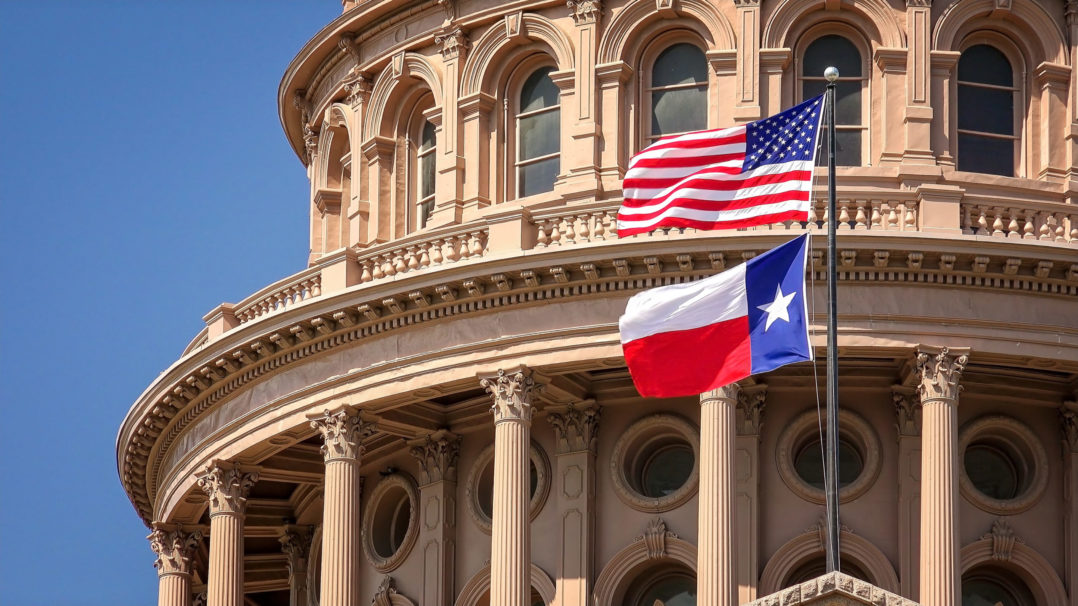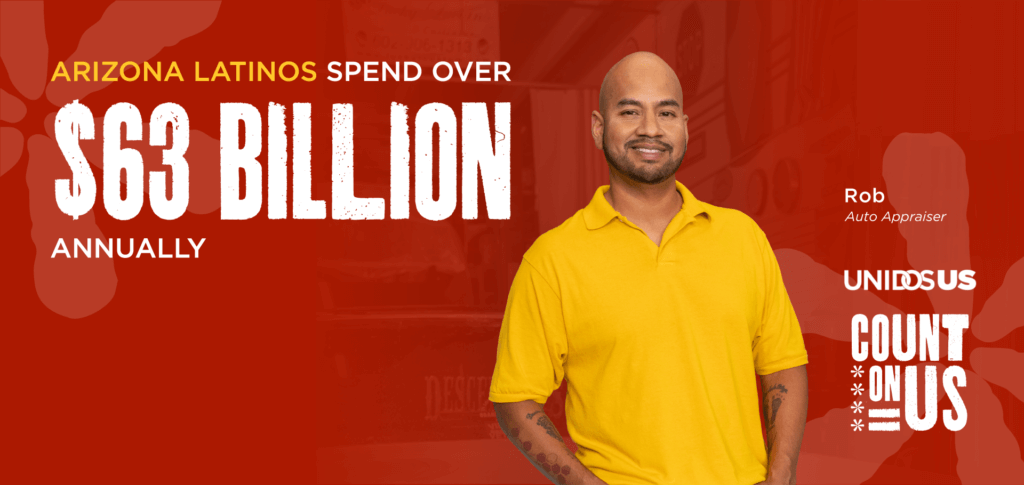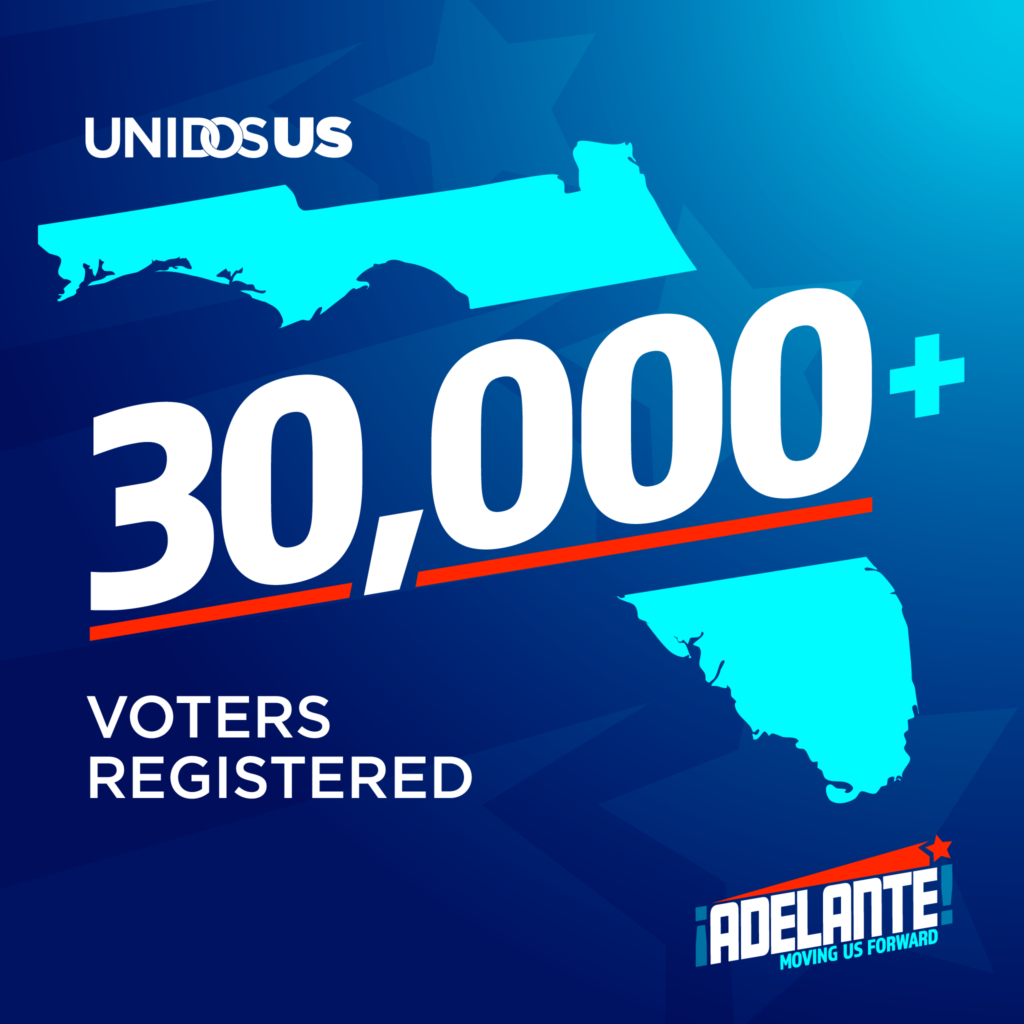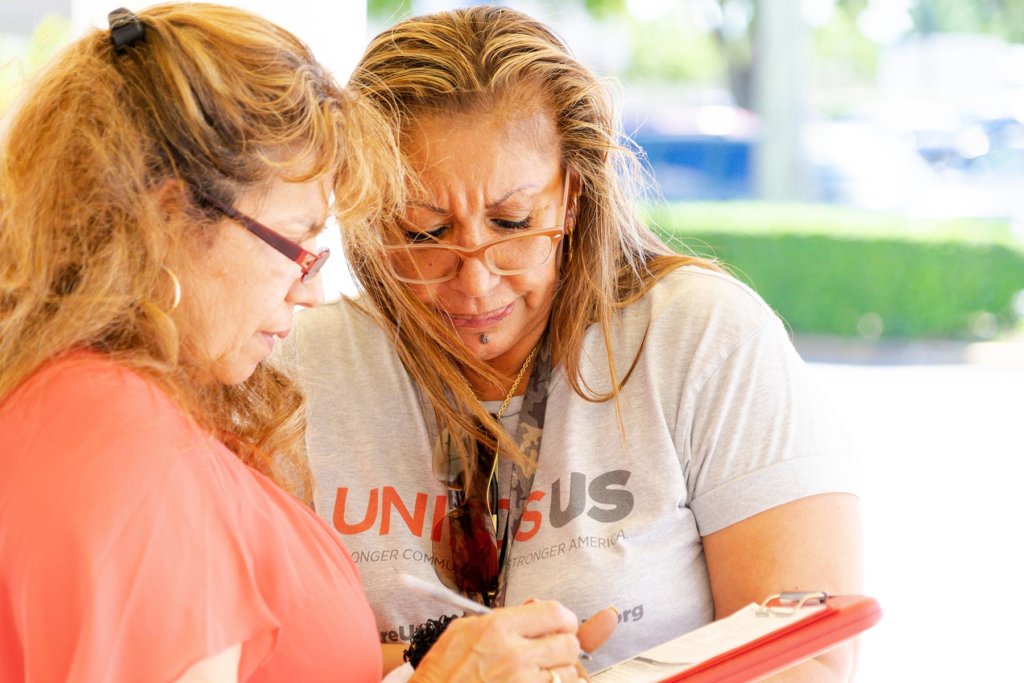COMMENTARY: Texas Legislature is Taking Aim at Voting Rights and Teaching the History of Underserved Groups
Author Manuel Grajeda is UnidosUS’s Texas Advocacy and Policy Strategist.
On July 12, more than 50 Texas Democratic State House members boarded planes to Washington, DC to protest a House Republican majority sold on passing two bills that are solutions looking for problems. The first bill will make it even harder for people of color and those with disabilities to vote. The second bill will censor in-classroom discussions on race, gender discrimination, and our collective history. For the second time this year, Texas House Democrats exercised their right to break quorum to draw attention to the issue, and are now in DC to lobby our U.S. senators in Congress to pass significant federal voter protections. Pressure is on for the U.S. Senate to pass the House-approved For the People Act and the John Lewis Voting Rights Advancement Act, which would restore federal voting protections, including those contained in the Voting Rights Act of 1965, particularly the preclearance requirement gutted by the Supreme Court in 2013.
Texas is no stranger to bills that gut the right of people of color to make their voices heard at the ballot box, in fact, the state is known for its legacy of egregious voter restrictions and the lowest voter turnouts in the country. Governor Abbott, in the false name of “election integrity” has made sure that SB 1 includes a variety of voter suppression tactics to hinder the record levels of turnout seen in 2020. The bill specifically targets many of the innovative voting methods, like those spearheaded by Harris County Judge Lina Hidalgo, whom UnidosUS recently awarded the Maclovio Barraza Award for Leadership, that were put in place to ensure all Americans, including Latinos hit hardest by the pandemic, could safely and securely cast a ballot. Some of the voter suppression provisions in SB 1 include:
- A ban on counties holding 24-hour voting days during early voting.
- A ban on drive-thru voting during early voting and Election Day.
- Regulation of early voting hours so counties can’t actually hold extended early voting hours.
- A requirement that voters provide their driver’s license number or the last four digits of their Social Security number on applications for mail-in and returned ballots.
SB 1 also allows for:
- Interference and intimidation from partisan poll watchers who have “free movement” to observe and record voter activity that they deem suspicious.
- Criminalization of assistants who help voters with disabilities.
- The Secretary of the State to regularly review the state’s voter rolls to identify previous noncitizens and purge those, now naturalized citizens, from the voter rolls. UnidosUS was a plaintiff in a lawsuit led by MALDEF stopping the administration from pursuing this illegal action in 2019.
These changes, which are unnecessary given the complete lack of evidence of massive voter fraud in Texas, would disproportionately hurt people of color and those with disabilities. We know now that the majority of voters who utilized the extended hours and the 24-hour voting days during early voting were people of color, many of whom have the types of jobs (primarily hourly service jobs) that do not allow for paid-leave to cover time spent at the voting booth.
If Governor Abbott and Texas Republicans really cared about the well-being of the Hispanic community and wanted their vote, they would be creating ways to make voting easier like having an online voter registration system. Texas is the largest state in the country to not have such a system, and the affects have been disastrous.
Fighting for Our Students and Democracy
“Critical Race Theory [is] largely a law school kind of study. It is a field that is in higher education—not so much in K-12. What is part of K-12 is critical thinking about race and racism. And that’s important work that needs to be done,” – Kimberlé Crenshaw, an American lawyer, civil rights advocate, philosopher, and professor at UCLA School of Law and Columbia Law School.
In May, Texas Democrats managed to soften the impact of HB 3979 aimed at prohibiting any teaching that might look like Critical Race Theory (CRT), a research framework used by academic scholars to think critically about race, racism, injustice, and oppression. They did so by adding amendments that would explicitly state certain parts of history—slavery and the KKK, for example—were morally wrong, and ensuring that students had the opportunity learn about key Civil Rights Movement activists such as Martin Luther King Jr., Cesar Chavez, and Dolores Huerta.
But Governor Abbott, undoubtedly preparing to run for president in 2024, has doubled down on preventing the discussion of race in Texas public classrooms in order to rile up the Republican base during this special session with SB 3. Again, the Governor is giving Texas a solution in search of a problem because there are no school districts in Texas that teach CRT in any part of their curricula. Governor Abbott is overtly attempting to whitewash the American history by banning teachers from discussing controversial subjects, yes, including slavery and lynching, unless teachers “explore such issues from diverse and contending perspectives (page 6 of SB 3).” It’s scary to think that some Texans believe lynching someone is morally okay, and that students would be taught that this contending perspective is legitimate.
As an organization that has spent more than 50 years organizing to help Latinos exercise their right to vote and to be fairly represented in their communities, we believe such bills are not only problematic for those voting age and below, discriminatory, and it’s unequivocally unamerican. In fact, they might even render some of our programming, including a civic engagement curriculum known as the High School Democracy Project, illegal in Texas public schools.
But it also makes the work of Texan Jose Rodriguez, UnidosUS’s director of parent and community engagement, that much more pressing. Rodriguez knows first-hand the struggle for educational civil rights in this state. As a child, he was spanked for speaking Spanish in the classroom. In the five decades that followed, he’s dedicated his life to promoting more humane, egalitarian, and culturally responsive educational practices, and for the past eight years, he’s been using his story to help Latino families advocate for their children’s education through UnidosUS’s Padres Comprometidos parent engagement program. Many of the lessons and ideas he shares, such as helping parents ask for support for their children who might be classified as an English learner or who might have an Individualized Education Plan. Schools must understand that parent engagement builds on the cultural assets of Latinos to create a sense of community that empowers parents to help shape their children’s lives. All these ideas could be instrumental in engaging all kinds of members of the public.
Here’s how you can help us fight:
- Register to vote, and if you can’t, encourage your family, friends, and those in your community to do so.
- Regardless of immigration status, call or write your state elected officials and tell them to oppose voter suppression and the whitewashing of our history books. Also, if you live in Texas, call our Senators John Cornyn and Ted Cruz and tell them to pass the For the People Act and the John Lewis Voting Rights Advancement Act. Find your Elected Officials here.
- Start discussing the issue with people you know if you are attending summer parties and cookouts, family reunions, the coffee hour of your places of worship, and parent teacher associations, etc.
- Engage with your local Texas UnidosUS Affiliate to find out what organizing they may already be doing around this issue, and, if you do have school-aged children, join a Padres Comprometidos program in your community.
There is currently a two-pronged attack on our community’s rights in Texas. The first would make it harder for us to vote and the second prevents our children from learning about our collective history. As this fight continues, we can’t have justice for our students and stave off oppression if students are forbidden from learning about the very history that some elected officials in leadership are trying to censor on racism, xenophobia, and gender discrimination. The fight against oppression and our full representation in the Texas Legislature is necessary and worth it, and we need everyone involved.




